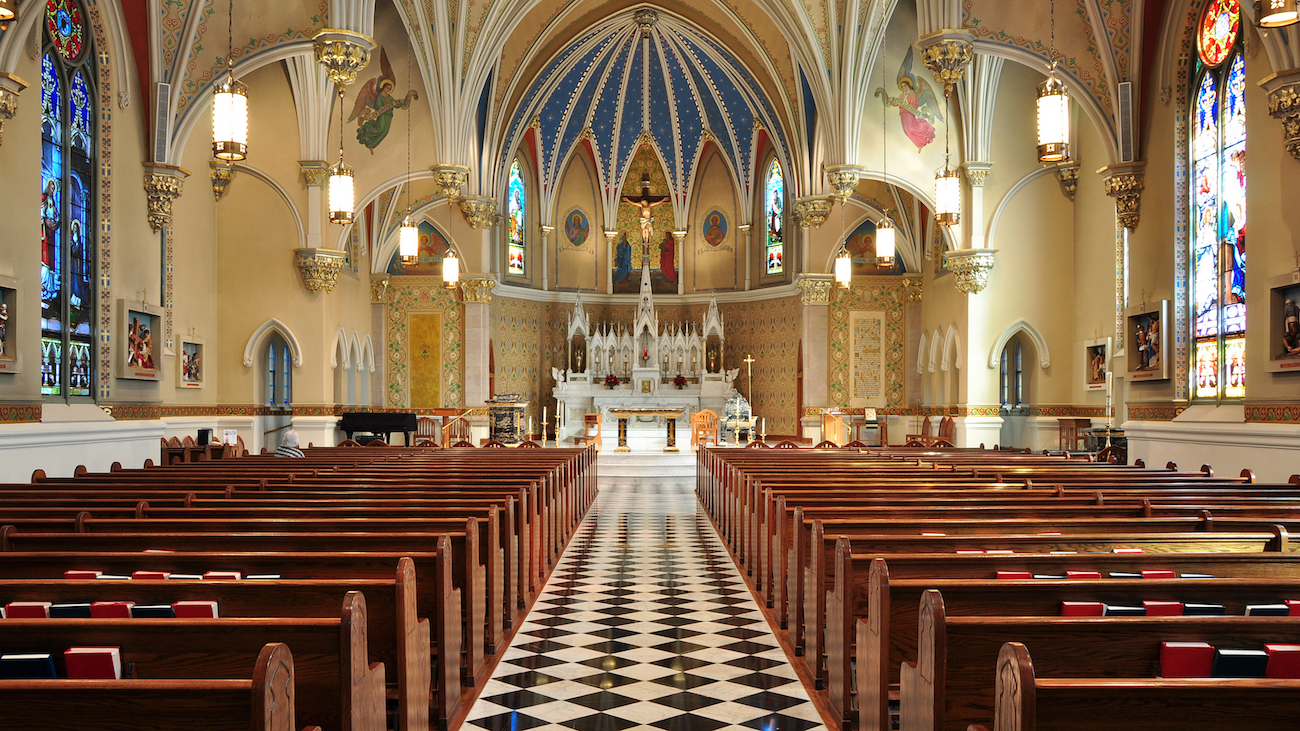Almost 150 years ago a ten-year-old boy from a noble family in England lost his sight in an accident. The boy, William Montague Dyke, didn’t let his disability control his life. As a young man, he graduated with honors from an English university, while at the same time falling in love with the daughter of a British naval officer. A wedding date was set, but a few weeks before the ceremony, William underwent surgery on his eyes in the hope his sight would be restored, knowing that if the surgery failed, he would remain blind for the rest of his life. He insisted the bandages not be removed from his eyes until the wedding began; that way, if the surgery had been successful, the first person he would see would be his bride. On the wedding day, the cathedral was filled with guests—including members of the royal family, government officials, and various prominent men and women from British society. William’s father, and the doctor who had performed the surgery, stood next to the groom, whose eyes were still covered with bandages.
The organ played the wedding march as the bride slowly processed down the aisle, tension and anticipation filling the church. When the bride reached the groom, the doctor took out a pair of scissors and carefully cut away the bandages. The congregation held its breath; everyone wanted to know if William would be able to see once again. After a moment of silence, as the groom stood face-to-face with the bride, William suddenly exclaimed in a loud voice, “You are more beautiful than I imagined!,” and the church erupted in applause (William J. Bausch, 40 More Seasonal Homilies, p. 59). William Montague Dyke wanted to see, and the granting of this prayer was made known in a wonderful and dramatic way. A far greater and more significant prayer involves being able to see with our hearts. Those who truly search for Jesus, and seek to discover His will for their lives, are assured that one day they shall indeed see Him face-to-face.
I suspect most people would be shocked, overwhelmed, and amazed if they could see their lives from God’s point of view. Most of their priorities in life would be of little importance from the vantage point of eternity, while they’d discover that they’d insufficiently valued some of the things of lasting significance. Lent is a time for us to clarify our priorities and look at our lives from the Lord’s perspective. As the passage from the 1st Book of Samuel (16:1B, 6-7, 10-13A) reminds us, God judges not by outward appearances, for He sees what lies within our hearts. The blind man in the Gospel of John (9:1-41) may have lacked physical sight, but he saw very clearly with his heart. After the Lord cured him, he bravely defended Jesus against the criticism of the religious leaders, and later worshipped Him when he had the chance. He was eager to see the One Who had healed him, and he didn’t care what anyone else said. We are supposed to live out our faith in this same clear-sighted way; as St. Paul tells us in his Letter to the Ephesians (5:8-14), we must “live as children of light, for light produces every kind of goodness and righteousness and truth.”
 In the 12th century St. Clare of Assisi, the friend and disciple of St. Francis, often wept when she prayed. One night she was crying as usual during her prayers, when the devil appeared and tried to confuse and upset her by saying, “Don’t cry so much; if you do, you’ll go blind!” To this, the saint responded with courage and conviction, “We are truly never blind, if we see God!” This sentiment is certainly true; the problem is that we live in a world that’s largely blind to God’s presence—and, for the most part, deliberately so. Society today does not want to acknowledge the Lord’s authority, or even His existence, and instead tries to deceive and distract us with its false values. For example, many Catholics—persons who would no doubt consider themselves good Christians—would not able to tell you which Sunday of Lent we’re observing or which Gospel passage was proclaimed at Mass, or even why Lent is necessary and important, but would be able to recite the scores of yesterday’s college basketball games and list the teams playing today. Others could easily describe all the winners at the most recent Academy Awards and Oscars, but would have trouble defending their Faith or remembering anything Pope Francis has taught; still others would be able to explain all the features and apps of the latest iPhone technology, but would have trouble reciting the Ten Commandments or naming the Church’s seven Sacraments.
In the 12th century St. Clare of Assisi, the friend and disciple of St. Francis, often wept when she prayed. One night she was crying as usual during her prayers, when the devil appeared and tried to confuse and upset her by saying, “Don’t cry so much; if you do, you’ll go blind!” To this, the saint responded with courage and conviction, “We are truly never blind, if we see God!” This sentiment is certainly true; the problem is that we live in a world that’s largely blind to God’s presence—and, for the most part, deliberately so. Society today does not want to acknowledge the Lord’s authority, or even His existence, and instead tries to deceive and distract us with its false values. For example, many Catholics—persons who would no doubt consider themselves good Christians—would not able to tell you which Sunday of Lent we’re observing or which Gospel passage was proclaimed at Mass, or even why Lent is necessary and important, but would be able to recite the scores of yesterday’s college basketball games and list the teams playing today. Others could easily describe all the winners at the most recent Academy Awards and Oscars, but would have trouble defending their Faith or remembering anything Pope Francis has taught; still others would be able to explain all the features and apps of the latest iPhone technology, but would have trouble reciting the Ten Commandments or naming the Church’s seven Sacraments.
It’s our human nature to remember the things that are interesting and important to us, even as we often overlook everything else. Lent is a time to make sure we’re seeing what truly matters; in a sense, it’s our opportunity to undergo a “spiritual eye exam” or vision test. For example, if we read or hear about someone being arrested for a serious crime, do we see someone who evokes our anger and disgust, or a sinner deserving of our pity and prayers? If we’re approached by someone needing a favor, do we see the situation as an inconvenience, or as an opportunity to practice Christian charity? If we encounter someone we strongly dislike, do we see him or her as an annoyance, or as Christ Himself in disguise? If we’re faced with a painful problem or sacrifice, do we see it as a reason to get angry or feel sorry for ourselves, or as a chance to accept and carry this particular cross for God’s glory and our own spiritual growth? If we’re confronted by a difficult and unwelcome teaching of the Church, do we see and resent it as an imposition and limitation on our freedom, or as reliable guidance on how to follow and please Jesus?
What we see will so often depend on what we’re looking for, and the state of our spiritual vision will be greatly influenced by whether we’re trying to see according to the values of this world, or those of God’s Kingdom. Learning to see God’s hand at work in our lives, and the Lord’s presence in all the people around us, is a choice—one that we’re called to reaffirm and renew during these remaining weeks of Lent. Every day we are training ourselves to view Jesus either as a hard-to-please Law-Giver and Judge, or as a loving Savior and Friend. Let us live in such a way that, when finally we see Him face- to-face, we’ll be able to exclaim, “You are more beautiful than I imagined!”








